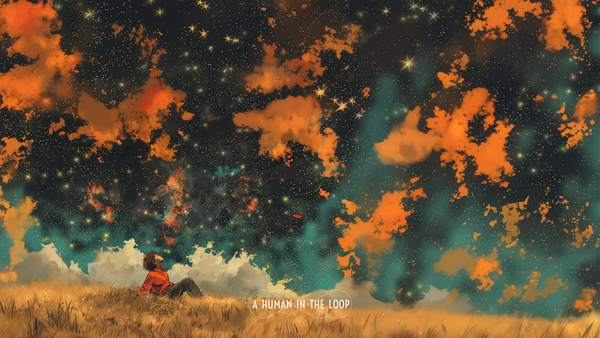What good is ChatGPT if you don't know how to use it?
Even if AI tools are more available, it doesn't mean people actually know how to use them effectively.

If you were an old-school lumberjack skilled with an axe, what would you do if I gave you a chainsaw — which you’ve never seen before?
Would you welcome the upgrade or resist the change?
Would you need a tutorial or figure it out on your own? <yikes>
Whatever the approach, it’s hard to deny that the chainsaw is going to increase the amount of wood you would be able to cut in less time — saving your back in the process. Right?
I submitted this question to ChatGPT, and here is the output I received:
I’d approach the chainsaw with a blend of curiosity and caution, arming myself with the necessary knowledge and skills before making it a part of my lumberjacking repertoire. Major takeaway? Always adapt, but do it wisely. Action item: Invest time in training before integrating new tools into established workflows.
Learning a new tool can be overwhelming, time-consuming, and scary. However, dedicating time to learn how to use it correctly while also becoming cognizant of its pitfalls can increase productivity, saving you time and effort while mitigating risks down the road.
Regardless of today’s headline (because no matter when you read this, I’m sure there are a few), AI is neither the hero nor the villain in this story.
AI is a powerful tool, but is it a chainsaw with the potential of improving the work of a lumberjack, a mirror reflecting our ideas, biases, and aspirations back at us, or is it an existential threat to humanity, here to take our jobs, make Hollywood writers and actors obsolete, and make music, poetry, or other forms of creative expression meaningless?
I guess the answer, knowing that it is a tool, would depend on who is yielding it. Right?
Do the Research, they said. So I did.
A study from Fall 2023 showed that access to AI tools is leveling the playing field for professionals everywhere, improving the speed and efficiency of knowledge workers, and making them more productive than if they didn’t utilize the tool.
The study analyzed the impact of GPT-4 on 758 consultants in partnership with Boston Consulting Group. The consultants were divided between top and lower performers, who all did similar tasks in their daily work.
When one of the 18 tasks given was within the AI’s capabilities, they found that AI improved productivity and quality of work. However, for tasks outside its capabilities, AI was less effective. This “Jagged Frontier” defines what AI is capable of and should be considered when deciding which tool to use for the job.
Consultants using AI finished 12.2% more tasks on average, completed tasks 25.1% more quickly, and produced 40% higher quality results than those without.
What I found most interesting is that underperformers who used AI experienced a significant productivity jump, coming close to the overperformers who didn’t do as well. The narrowing gap between these groups demonstrates that AI can be a powerful tool — elevating the underdog — when used for the right job.

The caveat to this is that the researchers also saw an increase in errors for the participants who used AI.
So, basically, the participants who viewed the AI as being the overlord instead of the intern had more errors and inaccuracies in their work.

Over-reliance on AI is like falling asleep at the wheel of a moving car.
Concerns about AI stealing jobs and spreading propaganda highlight the importance of educating ourselves on AI’s capabilities and limitations.
The more you use these AI tools, the more you experience errors and inaccuracies, not to mention the homogeneity of AI-generated outputs.
There are limits to what it can do. Wharton professor Ethan Mollick refers to this as the jagged frontier. One task may be easy for AI systems to generate an output, meaning the task falls within the frontier, while a seemingly similar task that falls outside the frontier isn’t as easy.
AI systems are prone to mistakes or hallucinations. So, always double-check any output you receive.
Now that Generative AI tools are easily accessible, we’re seeing an increase in misinformation and disinformation — continuing to threaten society, deteriorating trust like termites in the foundation of a house.
The problem is that we dropped the ball teaching people how to use the internet — to think critically about where they go for information and what information is being shared.
The only way we can make up for that lost education is by beginning now.
Here are 5 considerations for approaching AI and technology in general.
💡1. Don’t unquestioningly trust AI-generated content!
Remember, AI is not the overlord; it’s the intern. An intern who wants to please you by never saying no to a request and making shit up instead of showing up empty-handed.
1/ Read before you share!
2/ Verify information using multiple sources.
3/ Foster a critical mindset with a healthy amount of skepticism.
🤖 2. Dive into AI-powered apps for practical learning.
If you’ve ever traveled to a foreign country, you know cultural immersion is the best approach to learning a new language, right?
So start exploring what’s out there! Learn the basics. You may discover something that could have a positive impact on the way you live and work.
I use Grammarly, ChatGPT (obviously), Midjourney, and a few internet browser plug-ins on a daily basis. As someone prone to analysis paralysis, these tools have spared me countless hours of rumination and allowed me to move through the overwhelm that would have prevented this article from ever seeing the light of day. We’re talking about a paralyzing anxiety that I’ve felt since I was a kid sitting in class, biting my nails during my first writing assignment.
What has prevented you from writing that story or turning the image in your mind into something that everyone can see and enjoy?
There is no way you can learn about everything out there, especially when the landscape is constantly changing. Dive deeper into what is relevant and disregard the rest — for now.
There’s an AI for That is a great way to stay on top of all the new and wacky AI tools that are out there by sending a list of recommendations to your email inbox.
📚 3. Seek user-friendly AI courses and tutorials.
In the same way, everyone became an infectious disease expert early in the pandemic, there are a ton of voices (mine included) that have things to say about AI.
Avoid falling into an AI echo chamber by always being open to new insights from a variety of voices. Lately, I’ve been enjoying Cezary Gesikowski’s thoughtful and inspiring work.
If you need a bit more structure and human interaction, I highly recommend Dror Poleg’s Hype-Free AI course for a guided exploration into AI’s current and future state. You’ll walk away feeling like an AI aficionado through engaging lectures, online discussions, and practical hands-on homework assignments.
⚖️ 4. Remember the importance of ethics in AI.
Humans are building these models, and humans are inherently biased. Diversity of thought, cultural perspectives, and lived experiences must be integrated into the models.
Just like some people, who struggle with critical thinking, AI kinda sucks at incorporating context and nuance when generating responses.
Follow the people at the forefront of this work and actually read their work instead of making ChatGPT do it for you.
Engage in constructive conversations with people who have varying viewpoints. Start by following Brandeis Marshall.
Sometimes, the best way to positively influence a system is from the inside. Are there opportunities to be part of the production of these models?
Writers, poets, and artists of all kinds—I’m talking to you!
🔁 5. Explore AI’s practical relevance and potential for tomorrow
AI isn’t this new thing that appeared out of nowhere. Voice assistants, your bank’s fraud detection, social media content moderators, facial recognition software, online support chatbots, and……self-driving cars 🙄 are all examples of AI that many of us come in contact with daily.
Re-examine how you’ve integrated these into your life and whether it was an intentional choice. In what ways have these things improved your life, if at all?
The AI train has left the station, and there is much to explore on this new jagged frontier.
AI can be a tool that enhances our abilities, but it shouldn’t be a replacement that makes us passengers asleep the entire trip.
To harness its power responsibly and drive innovation, you can either jump aboard and actively participate in deciding where we go, or you can stay on the platform waiting for the next train.
Reach out if you have questions I can help you answer, and check back for more insights and resources to keep you in the AI loop!
— Eric, A Human in the Loop
An eclectic playlist of human-made tracks essential for navigating the Loop.






